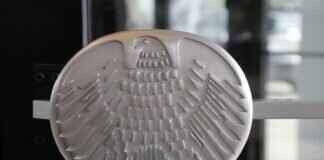The Laguna Beach City Council recently implemented a new ordinance requiring pickleball players to use quiet paddles or face fines, following complaints from residents at Vista Aliso over noise levels. The contentious issue has divided the community, sparking debates on both sides of the pickleball feud. It all began with the growing popularity of pickleball, a sport similar to tennis but played on a smaller court with plastic, perforated balls and smaller paddles.
Residents at Vista Aliso Speak Out
Residents at Vista Aliso, a senior living facility near Lang Park where pickleball matches take place, have voiced their concerns over the noise generated by the games. The sound of pickleball matches has caused severe anxiety and stress among the residents, leading to the implementation of the new ordinance. Susana Cruciana, a Vista Aliso resident, emphasized that the noise from pickleball is high-pitched and excessive, creating a hostile environment for the seniors living nearby.
Impact on the Pickleball Community
On the other side of the debate, pickleball players have expressed frustration over the restrictions imposed by the new ordinance. Many players have complied with the requirement to switch to quieter paddles, which cost about $100 each. However, some players feel that they have already made significant concessions, including reduced playing hours and financial investments in new equipment. Hillary Caston, a pickleball player, called for a fair compromise that would allow players to regain lost playing hours and maintain a sense of community within the sport.
City Councilmember Sue Kempf highlighted the council’s consideration of relocating the pickleball courts to a more suitable location to address the noise issues faced by Vista Aliso residents. The long-term goal is to find a solution that benefits both the pickleball community and the neighboring senior living facility.
The controversy surrounding noise complaints from pickleball courts is not unique to Laguna Beach. Across the country, similar disputes have arisen as the sport has gained popularity in recent years. With 4.8 million people playing pickleball in 2020, a 40% increase from just two years prior, the noise concerns have become more widespread.
Nalini Lasiewicz, who heads a nonprofit organization focused on pickleball noise relief, highlighted the profound medical effects that noise from the sport can have on nearby residents. The sharp, high-pitched sound of a pickleball hit can trigger stress hormones and a fight-or-flight response, impacting the well-being of individuals in the vicinity. Despite the introduction of quiet paddles as a measure to mitigate noise levels, concerns remain about the lasting effects of the noise on vulnerable populations, such as seniors living near pickleball courts.
In conclusion, the dispute over noise complaints at Laguna Beach pickleball courts underscores the challenges of balancing recreational activities with community well-being. While efforts have been made to address the concerns of both residents and players, finding a sustainable solution that accommodates all parties remains a complex task. As the debate continues, the importance of fostering understanding, empathy, and compromise within the community will be crucial in resolving the pickleball noise controversy for the benefit of all involved.














